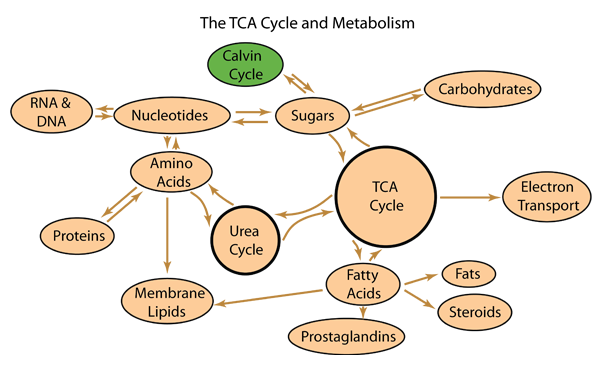The tricarboxylic acid cycle (TCA cycle) is connected to many parts of the body's metabolism and forms a key part of aerobic respiration in cells. This cycle is also called the Krebs cycle and the citric acid cycle. This diagram seeks to show the interconnections between the TCA cycle and other processes of life. It is patterned after the treatment of Ahern.

The TCA cycle is a central oxygen-dependent metabolic pathway which connects to many processes. It is common to every cell from bacteria to humans. The cycle extracts energy and provides intermediates for other processes, then returns to its starting point. The oxidation processes with the intermediates accomplish the capturing of energy in the phosphate bonds (ATP) and in the molecules of the activated carriers NADH and FADH2.
| Add compound names to TCA cycle |
| Cellular Respiration |
Reference
Audesirk & Audesirk
Ch 8
Ahern, Biophysics ...
Ch 13.
| HyperPhysics***** Biology | R Nave |